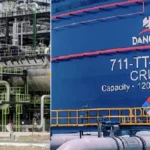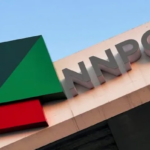Oil prices climbed on Tuesday, pushed up by supply cuts led by producer club, OPEC, and U.S. sanctions against Iran and Venezuela, although concerns about a potential recession kept markets from rising further.
Brent crude oil futures were at 67.48 dollars per barrel at 0747 GMT, up 27 cents, or 0.4 per cent, from their last close.
U.S. West Texas Intermediate (WTI) futures were at 59.35 dollars per barrel, up 53 cents, or 0.9 per cent, from their last settlement.
Oil prices have been supported for much of 2019 by efforts by OPEC – Organisation of the Petroleum Exporting Countries – and non-affiliated allies such as Russia, who have pledged to withhold around 1.2 million barrels per day (bpd) of supply this year to prop up markets.
Prices have also been driven up by U.S. sanctions on oil exporters and OPEC-members – Iran and Venezuela.
Commodity trader, Trafigura, said on Monday it expects Brent to trade between 66 dollars and 67 dollars a barrel, or slightly higher, for the rest of the year.
Analysts said that oil prices would likely be higher by now if not for a spreading economic slowdown that, some say, could turn into a recession soon and dent fuel consumption.
“Recession risks have risen to the highest since 2008,” said Ole Hansen, Head of Commodity Strategy at Saxo Bank.
Manufacturing data from Asia, Europe and North America is pointing to a sharp economic slowdown.
“Global factory output growth slowed to a one percent rate last quarter, and indicators point to a near stall this quarter,” said JPMorgan Chase Bank.
“Outside China, Asian industry was already contracting as we turned into the New Year,” the U.S. bank added. (Reuters/NAN)

 Join Daily Trust WhatsApp Community For Quick Access To News and Happenings Around You.
Join Daily Trust WhatsApp Community For Quick Access To News and Happenings Around You.


